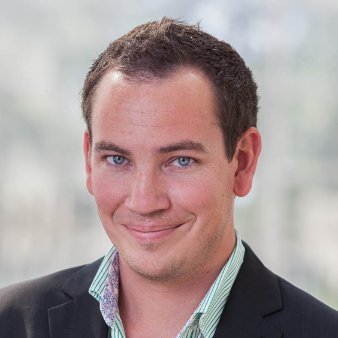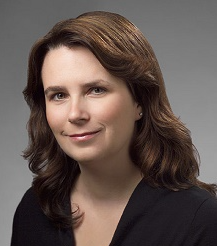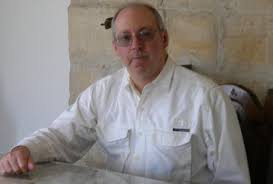 The enormity and severity of the West African Ebola epidemic that began in 2014 is hard to fathom. Over 10,000 people died with hundreds of thousands deeply affected by loss. In treating any medical condition, information is needed to provide adequate care, but when it’s an epidemic so severe, so dangerous and so fast-moving, it’s required more than ever. Ebola creates enormous barriers for patient care. It’s communicability means those who directly treat patients within the “Red Zone” must take extreme precautions. The lack of knowledge about who is infected and what constitutes effective treatment — not to mention the swift and severe toll it takes on the human body — makes caring for those affected extremely difficult...
The enormity and severity of the West African Ebola epidemic that began in 2014 is hard to fathom. Over 10,000 people died with hundreds of thousands deeply affected by loss. In treating any medical condition, information is needed to provide adequate care, but when it’s an epidemic so severe, so dangerous and so fast-moving, it’s required more than ever. Ebola creates enormous barriers for patient care. It’s communicability means those who directly treat patients within the “Red Zone” must take extreme precautions. The lack of knowledge about who is infected and what constitutes effective treatment — not to mention the swift and severe toll it takes on the human body — makes caring for those affected extremely difficult...
Doctors Without Borders
See the following -
A Law Professor’s Big Idea for Combating Greedy Drug Company Titans Like Martin Shkreli
In 2015, CEO of Turing Pharmaceuticals Martin Shkreli infamously raised the price of the life-saving drug Daraprim by 5,000%. Daraprim, developed more than 60 years ago, is used to treat the deadly parasitic infection toxoplasmosis. It was selling for $13.50 a pill; then Turing raised the price to $750. The move sparked massive backlash and Congressional hearings, and Shkreli himself was eventually arrested for, and convicted of, unrelated securities fraud charges. But the original, horrible problem didn’t get fixed. Turing kept the price sky-high; as of August 2016, many patients were paying $375 per pill...
- Login to post comments
Bill Gates Won’t Save You From The Next Ebola
In late August 2014, Tom Frieden, then director of the Centers for Disease Control and Prevention, traveled to West Africa to assess the raging Ebola crisis. In the five months before Frieden’s visit, Ebola had spread from a village in Guinea, across borders and into cities in Liberia and Sierra Leone. Médecins Sans Frontières, the first international responder on the scene, had run out of staff to treat the rising numbers of sick people and had deemed the outbreak “out of control” back in June...
- Login to post comments
Fighting Ebola with Open Source Collaboration
- Login to post comments
Google Builds a New Tablet for the Fight Against Ebola
Jay Achar was treating Ebola patients at a makeshift hospital in Sierra Leone, and he needed more time. This was in September, near the height of the West African Ebola epidemic. Achar was part of a team that traveled to Sierra Leone under the aegis of a European organization called Médecins Sans Frontières, or Doctors Without Borders. In a city called Magburaka, MSF had erected a treatment center that kept patients carefully quarantined, and inside the facility’s high-risk zone, doctors like Achar wore the usual polythene “moon suits,” gloves, face masks, and goggles to protect themselves from infection...
- Login to post comments
Google Builds a New Tablet for the Fight Against Ebola
 Jay Achar was treating Ebola patients at a makeshift hospital in Sierra Leone, and he needed more time. This was in September, near the height of the West African Ebola epidemic. Achar was part of a team that traveled to Sierra Leone under the aegis of a European organization called Médecins Sans Frontières, or Doctors Without Borders. In a city called Magburaka, MSF had erected a treatment center that kept patients carefully quarantined, and inside the facility's high-risk zone, doctors like Achar wore the usual polythene "moon suits," gloves, face masks, and goggles to protect themselves from infection...
Jay Achar was treating Ebola patients at a makeshift hospital in Sierra Leone, and he needed more time. This was in September, near the height of the West African Ebola epidemic. Achar was part of a team that traveled to Sierra Leone under the aegis of a European organization called Médecins Sans Frontières, or Doctors Without Borders. In a city called Magburaka, MSF had erected a treatment center that kept patients carefully quarantined, and inside the facility's high-risk zone, doctors like Achar wore the usual polythene "moon suits," gloves, face masks, and goggles to protect themselves from infection...
- Login to post comments
Google Fights Ebola
 While governments around the world were unsuccessfully trying to make up their minds about the best approach, sitting around and debating and discussing about the most valid ways to combat Ebola …Google came up to the plate in November and its CEO announced it would pledge $2 for every dollar donated through its website. They set up a specific URL onetoday.google.com/fightebola to explain this original social action and invite people worldwide to contribute to this worthwhile, timely cause...
While governments around the world were unsuccessfully trying to make up their minds about the best approach, sitting around and debating and discussing about the most valid ways to combat Ebola …Google came up to the plate in November and its CEO announced it would pledge $2 for every dollar donated through its website. They set up a specific URL onetoday.google.com/fightebola to explain this original social action and invite people worldwide to contribute to this worthwhile, timely cause...
- Login to post comments
Hackathons Bring Open Source Innovation to Humanitarian Aid
 In open source software, end users, decision makers, subject matter experts, and developers from around the world can work together to create great solutions. There are a lot of mature open source projects out there already in the field of humanitarian and development aid, for example: Ushahidi and Sahana in crisis management and information gathering, OpenMRS for medical records, Martus for secure information sharing in places with limited freedom of speech, and Mifos X, an open platform for financial inclusion for people in poor areas where financial services such as savings, payments, and loans are not offered...
In open source software, end users, decision makers, subject matter experts, and developers from around the world can work together to create great solutions. There are a lot of mature open source projects out there already in the field of humanitarian and development aid, for example: Ushahidi and Sahana in crisis management and information gathering, OpenMRS for medical records, Martus for secure information sharing in places with limited freedom of speech, and Mifos X, an open platform for financial inclusion for people in poor areas where financial services such as savings, payments, and loans are not offered...
- Login to post comments
How A Free Mobile App Fights Ebola And Other Global Epidemics
 The enormity and severity of the West African Ebola epidemic that began in 2014 is hard to fathom. The outbreak resulted in more than 11,000 deaths, and hundreds of thousands of people affected by loss. Providing adequate care for any medical condition depends on information, but even more so when dealing with an epidemic that is as severe, dangerous, and fast-moving as Ebola. This is the story of how a dispersed global health IT community banded together to solve the enormous, unique information challenges presented by Ebola...
The enormity and severity of the West African Ebola epidemic that began in 2014 is hard to fathom. The outbreak resulted in more than 11,000 deaths, and hundreds of thousands of people affected by loss. Providing adequate care for any medical condition depends on information, but even more so when dealing with an epidemic that is as severe, dangerous, and fast-moving as Ebola. This is the story of how a dispersed global health IT community banded together to solve the enormous, unique information challenges presented by Ebola...
- Login to post comments
The Opposite of Martin Shkreli: Drug Development Without Profit
 From inside the van, Nathalie Strub Wourgaft watches the scene unfold in silence. She looks tired, and a little tense. Wourgaft is the medical director of a Geneva-based organization devoted to developing treatments for syndromes that afflict the poor, called the Drugs for Neglected Diseases initiative (DNDi), and she is in Sudan for just 3 days to scope out the setting for a clinical trial that will be the first of its kind. By May, Wourgaft and a Sudanese surgeon, Ahmed Fahal, hope to test a new drug for a potentially lethal, flesh-eating fungal infection called mycetoma...
From inside the van, Nathalie Strub Wourgaft watches the scene unfold in silence. She looks tired, and a little tense. Wourgaft is the medical director of a Geneva-based organization devoted to developing treatments for syndromes that afflict the poor, called the Drugs for Neglected Diseases initiative (DNDi), and she is in Sudan for just 3 days to scope out the setting for a clinical trial that will be the first of its kind. By May, Wourgaft and a Sudanese surgeon, Ahmed Fahal, hope to test a new drug for a potentially lethal, flesh-eating fungal infection called mycetoma...
- Login to post comments
TPP Treaty Could be a Serious Threat to US Public Health System
 While trade agreements may seem to be another, albeit international species of wonkery, these agreements could have major effects on patients' and the public's health. Since these concerns have been essentially ignored by the US medical and health care literature, (although they have appeared in UK journals, Australian, and New Zealand journals in English), they I will discuss them below. Worthy of further discussion is the possibility that these potential threats to health care and public health may arise not just from ideological disagreements, but also from health care corporations' increasing capture of government, facilitated by the conflicts of interest generated by the revolving door. Read More »
While trade agreements may seem to be another, albeit international species of wonkery, these agreements could have major effects on patients' and the public's health. Since these concerns have been essentially ignored by the US medical and health care literature, (although they have appeared in UK journals, Australian, and New Zealand journals in English), they I will discuss them below. Worthy of further discussion is the possibility that these potential threats to health care and public health may arise not just from ideological disagreements, but also from health care corporations' increasing capture of government, facilitated by the conflicts of interest generated by the revolving door. Read More »
- Login to post comments
World's Largest Open Source Health Information Technology Project Tackles Ebola
 "An effective, longitudinal medical record is an essential requirement for Ebola treatment and these records can't be carried in and out of infected areas. A networked electronic medical record is essential--and OpenMRS offers a cost-effective, well-tested system that has been deployed in multiple sites in dozens of countries in a sustainable way," said OpenMRS co-founder and project leader Paul Biondich, M.D., a Regenstrief Institute investigator and Indiana University School of Medicine associate professor of pediatrics.
"An effective, longitudinal medical record is an essential requirement for Ebola treatment and these records can't be carried in and out of infected areas. A networked electronic medical record is essential--and OpenMRS offers a cost-effective, well-tested system that has been deployed in multiple sites in dozens of countries in a sustainable way," said OpenMRS co-founder and project leader Paul Biondich, M.D., a Regenstrief Institute investigator and Indiana University School of Medicine associate professor of pediatrics.
- Login to post comments